LONDON: When Ebrahim Raisi was declared winner of Iran’s June 18 presidential election, the world quickly turned its attention to the effect this would have on the Arab region, where the Islamic Republic’s proxy militias and advanced weaponry have long inspired terror and wielded influence over internal affairs.
Raisi has a reputation as an ultraconservative, but Norman Roule, a Middle East expert and former senior official in the CIA, believes that the 60-year-old cleric’s rise to power will change little in terms of the scope and direction of Iranian foreign policy.
“(The) election of Ebrahim Raisi means that Iran is transitioning to a new generation of leadership, which will be hard line and which will continue Iran’s aggressive policies for the region,” he told Arab News in a special interview.
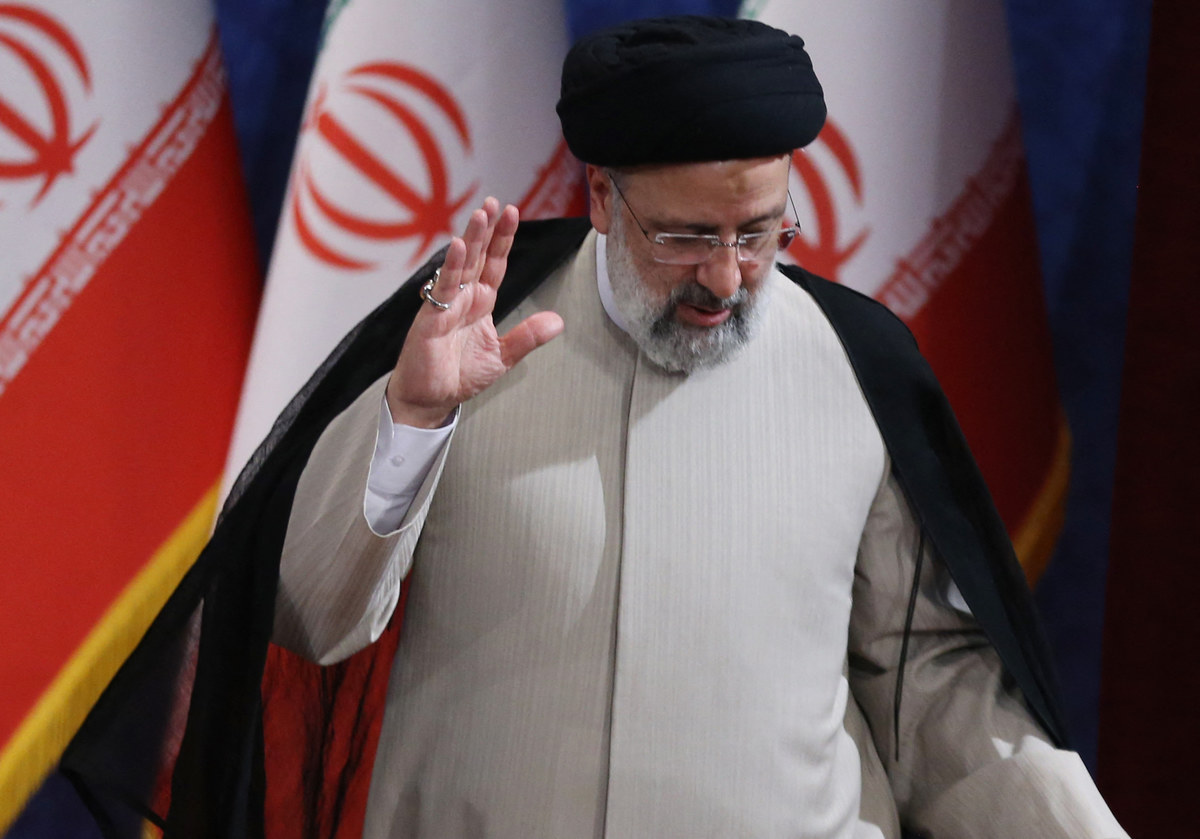
Raisi secured nearly 62 percent of the 28.9 million votes cast in the June 18 Iranian presidential election. (AFP)
Roule should know: He spent 34 years with the CIA covering the Middle East and is a senior adviser to the Counter Extremism Project and to United Against Nuclear Iran. He predicts the Iranian regime will continue to support its proxies throughout the Arab world as a means to project power abroad.
“Iran’s proxies in the region — the Houthis (in Yemen), Kataib Hezbollah and other Iraqi militias, militias in Syria, and the Lebanese Hezbollah — will receive continued strong support from Tehran,” he said.
On Monday, in his first comments since his landslide victory, Raisi rejected the possibility of any negotiations, as part of renewed talks on the nuclear deal, about Tehran’s ballistic-missile program or its support for regional militias. “It’s non-negotiable,” he said.
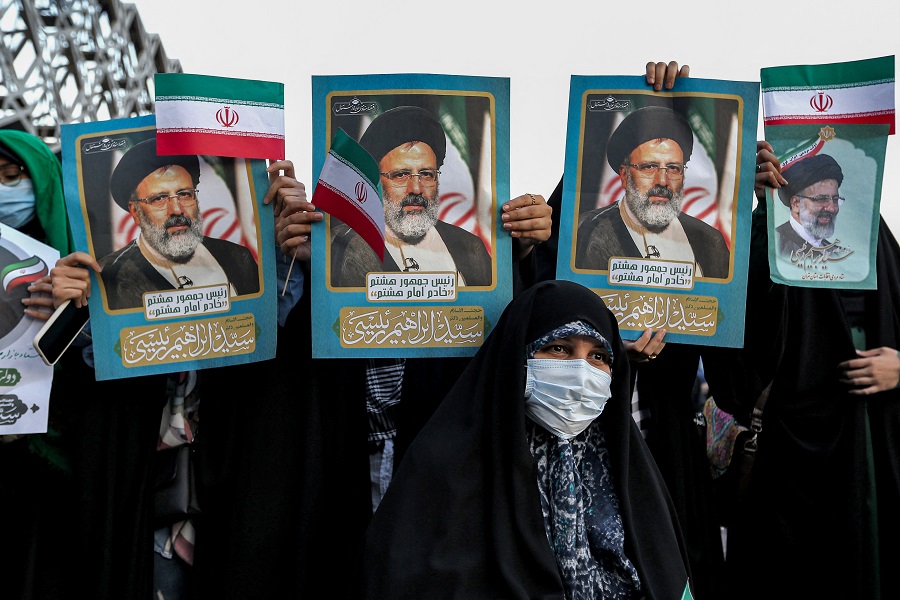
Raisi’s true power as Iran’s president will lie in ensuring the hard-line ideology of Wilayat Al-Faqih. (AFP)
Raisi secured nearly 62 percent of the 28.9 million votes cast in the election, which had the lowest turnout in the history of the Islamic Republic. The candidate list had been carefully manipulated by the regime’s powerful Guardian Council to guarantee an acceptable winner.
Even with a strong mandate, however, in reality Iran’s new president has very little control over Tehran’s foreign and military policies, as the activities of the Islamic Revolutionary Guard Corps (IRGC) and its extraterritorial Quds Force are under the strict command of Supreme Leader Ali Khamenei.
So when former Islamic jurist Raisi takes the reins from his more moderate predecessor, Hassan Rouhani, he will simply be “more ideologically consistent and supportive of these efforts,” Roule said.
The new president’s true power will lie in ensuring the hard-line ideology of Wilayat Al-Faqih (Guardianship of the Islamic jurist) that was created by Ayatollah Ruhollah Khomeini — father of the 1979 Islamic Revolution — will live on.
“Now that he is in the position of president, it gives him an opportunity to place hard-line actors, former IRGC personnel in particular, in different parts of the Iranian government, so that when the supreme leader passes on, he will be able to assure a smoother transition to a continued hard-line government, which because of his relatively young age could last another 20 to 30 years,” Roule said.
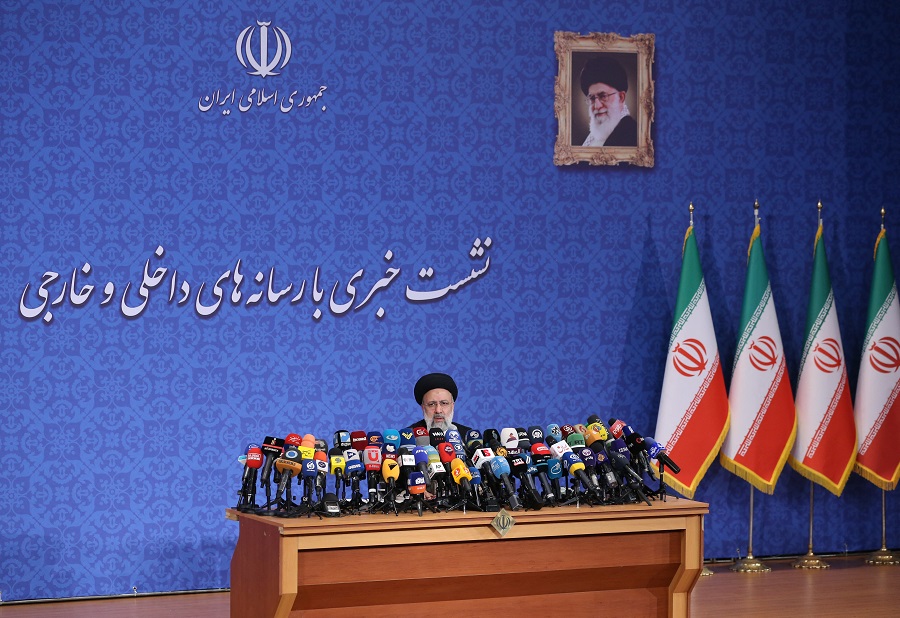
The president has very little control over Iran’s foreign and military policies, which are under the strict command of Supreme Leader Ali Khamenei. (AFP)
Dubbed the “Butcher of Tehran” by rights activists, Raisi is unrepentant about his bloody past. A protege of Khamenei, he is accused of ordering the execution of tens of thousands of dissidents over the past three decades. Iranian activists also claim that Raisi, as a junior prosecutor in the 1980s, headed “death committees” that buried murdered political prisoners in mass graves in 1988.
His election to the presidency could be an indication of further planned crackdowns on dissent and protest.
“At some point, the Iranian people may decide they’ve just had enough and I think that will be a moment of blood,” Roule said. “The security forces in Iran will push down on that.
“But you just can’t help feeling sympathy for the Iranian people, who have to endure such a system at a time of such extraordinary and positive change so close to their border.”
Across the Gulf, countries such as Saudi Arabia and the UAE are marching ahead in the fields of technology, entertainment and efforts to tackle the effects of climate change.
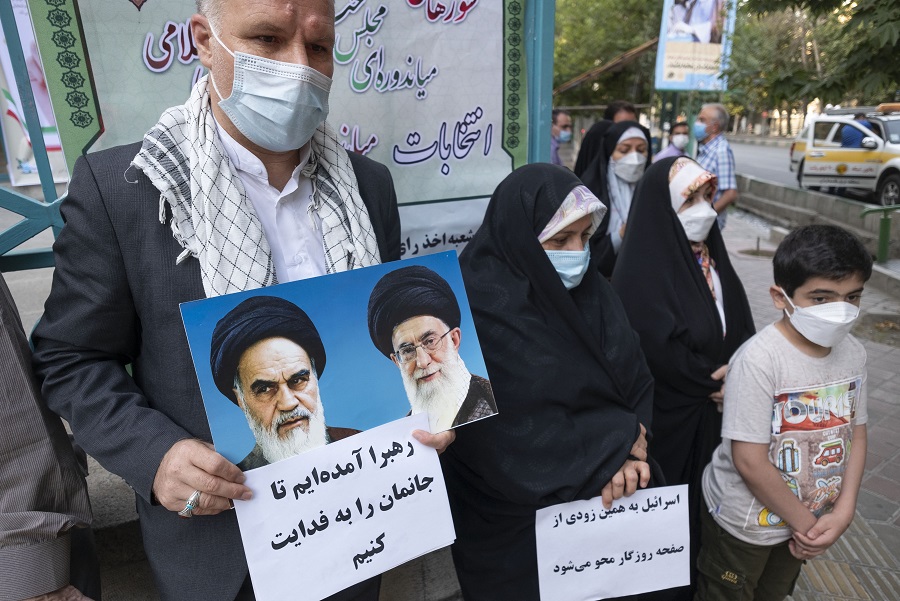
Raisi’s election to the presidency could be an indication of further planned crackdowns on dissent and protest. (AFP)
“I’ve spent many years following the region and I’m watching right now the most extraordinary and impressive series of political, social, economic and technological changes; Iran is not part of any of these changes,” Roule said.
“The Iranian people enjoy an extraordinary history but they are daily falling further and further behind. Iran is stuck in a time warp. It is stuck in an archaic political system, which is out of sync with where the world is going.”
Although Raisi has said there are no obstacles to Tehran and Riyadh mending their relationship, Roule views the president-elect’s comments with disdain.
“The obstacles to better relations between Iran and Saudi Arabia are in the form of Iranian missiles and drones, which are fired upon innocent men, women and children in Saudi Arabia every day it seems,” he said, referring to attacks launched from Yemen.
“Saudi Arabia and the Gulf Arab states are conducting no aggression against Iran but Iran routinely provides proxies with the money, weapons and training to attack innocent civilians throughout the region. That’s a terrific obstacle.”
Raisi is due to take up his office on Aug. 8 during what is a sensitive time, diplomatically. The US and European powers are trying to revive some version of the 2015 Joint Comprehensive Plan of Action, also known as the Iran nuclear deal, from which the Trump administration withdrew in 2018, arguing it was not robust enough.
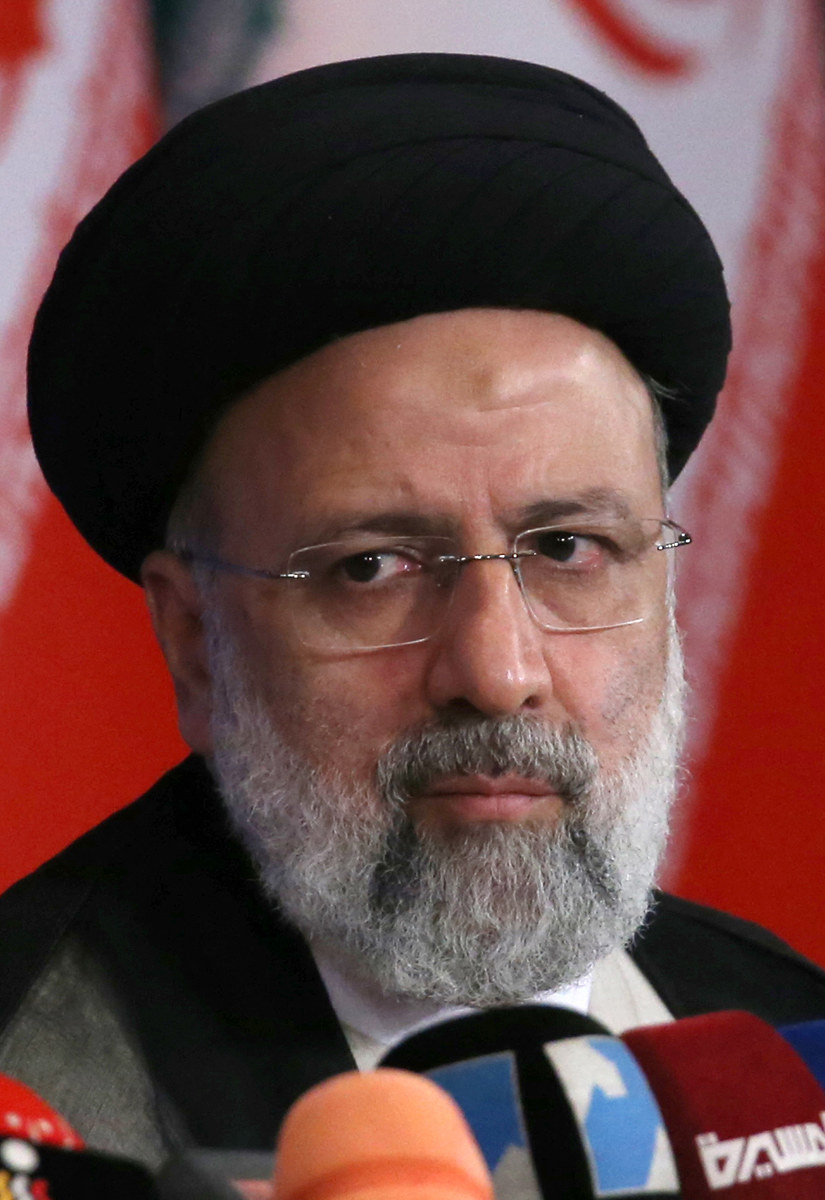
Raisi stands accused of ordering the execution of tens of thousands of Iranian dissidents over the past three decades. (AFP)
While many believe a new and improved deal could defang Iran and help bring calm to the region, Roule firmly disagrees, predicting that any sanctions relief for Tehran in exchange for nuclear restraint will only fuel its other activities.
“There is no reason Iranian hardliners should oppose a nuclear deal,” he said. “A nuclear deal does not constrain regional activities or missile activities. It provides them with steady resources to, indeed, support these activities.
“I don’t believe that Iran is going to lessen its regional threat. I do believe that the nature of the regional political dynamic is changing as the conflict in Syria ends and as Iraq stabilizes. The Iranians are going to look to change their proxies, from fighting militias to political elements, and I think we’re going to see a different type of Iran activity in the region.”
To help achieve this, Roule predicts Iran will increase its support for its Lebanese proxy.
“Hezbollah needs to walk a very careful path in the coming months in Lebanon,” he said. “They wish to retain control, their influence, the influence of their political allies over key ministries, but they want to make sure that they are not seen as bearing any responsibility for the economic and political decision-making and the hardships this has imposed on the innocent Lebanese people.
“Imagine that you have $600-700 million a year being sent to a terrorist organization and militia which holds the Lebanese people hostage. This will increase after a nuclear deal, unfortunately, and the international community has very few options to constrain this.”
Roule also believes the election of Raisi as president will make the possibility of a diplomatic solution to the war in Yemen even more remote, as the Iran-backed Houthi militia is unlikely to accept a package that diminishes its influence.
“I remain generally pessimistic only because the regional actors and the United Nations have worked very hard for years to bring the Houthis to the diplomatic table,” he said.
“They have offered a series of political and financial packages to the Yemeni people, working through the Yemeni government, which is an actor we should never forget, and the Houthis have rejected this.”
________________
• Twitter: @Tarek_AliAhmad


























